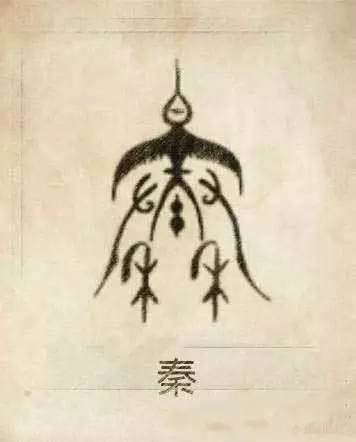Meta Description: Discover the origins, legends, and cultural significance of the Qin (qín)surname, one of China’s oldest family names, and its enduring impact on Chinese civilization.

The Qin Surname: From Ancient Kingdoms to Global Influence
For Americans curious about Chinese surnames, the story of Qin (qín) offers a fascinating window into China’s history, cultural diversity, and enduring traditions. With roots stretching back over three millennia, the Qin surname embodies the fusion of empires, migrations, and cross-cultural exchanges that shaped East Asia.
Origins: A Tapestry of Bloodlines and Civilizations
The Qin surname’s origins reflect China’s multicultural heritage, blending royal lineages, territorial conquests, and Silk Road connections:
The Royal Ying Clan
The primary lineage traces back to Feizi, a horse-breeding expert granted the title "Lord of Qin" by King Xiao of Zhou (9th century BCE). His descendants established the Qin Kingdom, which unified China in 221 BCE under Emperor Qin Shihuang—the first emperor and builder of the Terracotta Army4. After the dynasty’s fall, royal descendants adopted “Qin” as their surname.
The Zhou Dynasty’s Legacy
A secondary branch emerged from the Ji Clan of the Zhou Dynasty (1046–256 BCE). Descendants of the Duke of Zhou settled in “Qin” territory (modern Henan), adopting the name as their own.
Silk Road Connections
Intriguingly, some Qin families descend from Roman traders who traveled the Silk Road during the Han Dynasty (206 BCE–220 CE). The Chinese called Rome “Da Qin” (Great Qin), and settlers adopted the name as a mark of cultural integration.
Legends and Heroes: The Qin Legacy in Action
The Qin name is tied to iconic figures who shaped Chinese history:
Bian Que (Qin Yueren): A Warring States-era physician (5th century BCE) who pioneered diagnostic methods like pulse-taking, laying the foundation for traditional Chinese medicine.
Qin Qiong: A Tang Dynasty general (7th century) later immortalized as a door god in Chinese folklore, symbolizing loyalty and protection.
Qin Liangyu: The only female noble in Chinese history officially recognized for military prowess, leading troops against rebels in the Ming Dynasty.
Qin Guan: A Song Dynasty poet celebrated for his lyrical verses on love and longing, embodying the elegance of classical Chinese literature.
Cultural Symbols: Ancestral Halls and Ethical Codes
Qin families preserved their heritage through symbolic traditions:
Ancestral Halls :
San Xian Hall honors four Qin scholars who studied under Confucius, reflecting the family’s scholarly pride.
Le Shan Hall (“Joy in Virtue”) highlights a Confucian ideal of moral integrity passed down through generations.
Architectural Heritage:
The Qin Clan Ancestral Hall in Suzhou, with its Ming-era architecture and genealogical records, stands as a testament to the surname’s continuity.
The Qin legacy extends beyond history books:
Political Innovation: The Qin Dynasty’s standardization of laws, writing, and measurements created a template for governance still studied today.
Modern Contributions:
Qin Yuanxun: A nuclear physicist pivotal to China’s atomic program.
Qin Liwei: A cellist bridging Eastern and Western music, reimagining classics like Dream of the Red Chamber.
Why the Qin Name Matters Today
For Americans exploring Chinese culture, the Qin surname is more than a label—it’s a living archive. From the Terracotta Warriors guarding an emperor’s tomb to the poetry of Qin Guan, this name encapsulates China’s journey from feudal states to a global power. Its story reminds us that cultural identity is often a blend of history, migration, and shared human values.